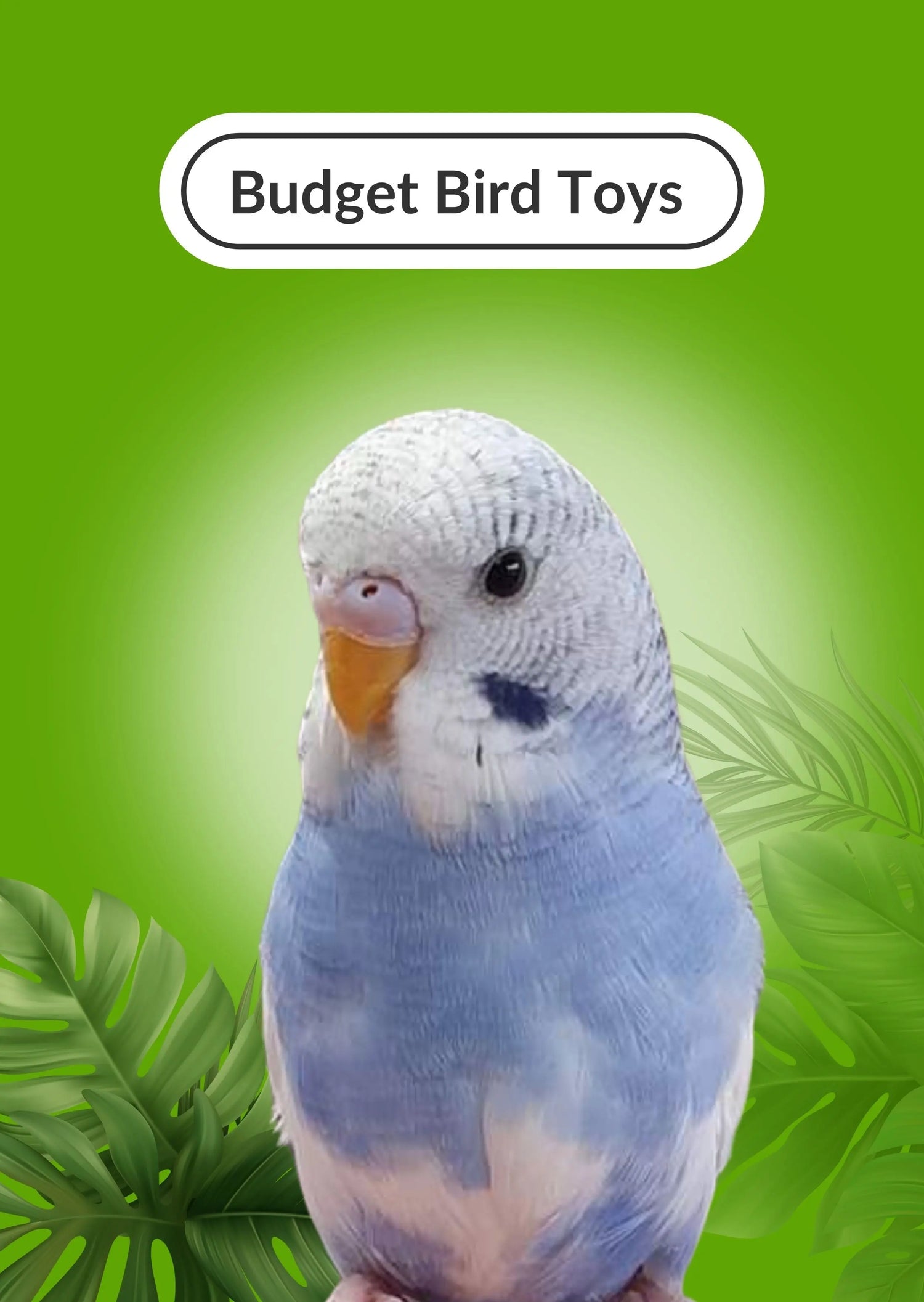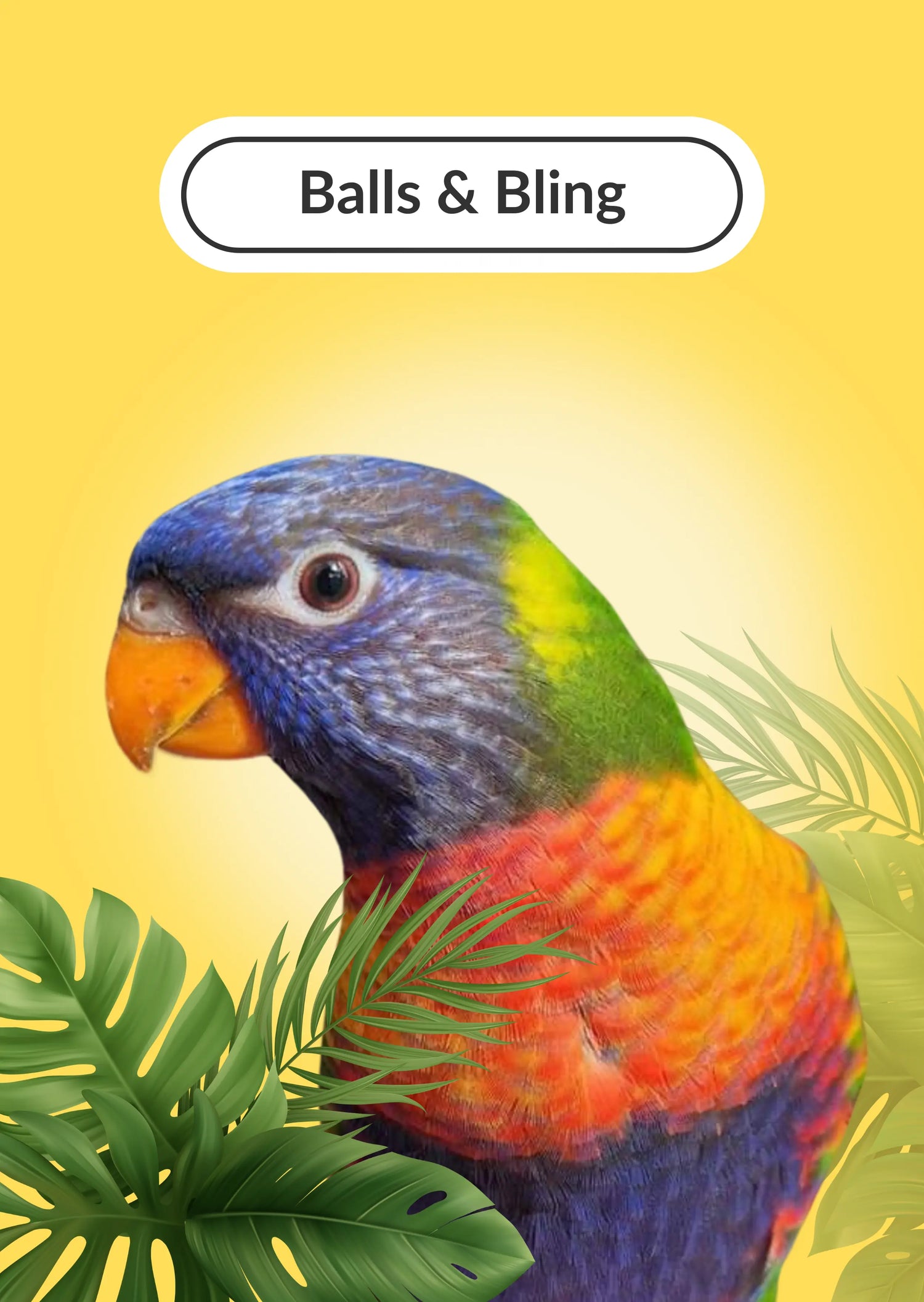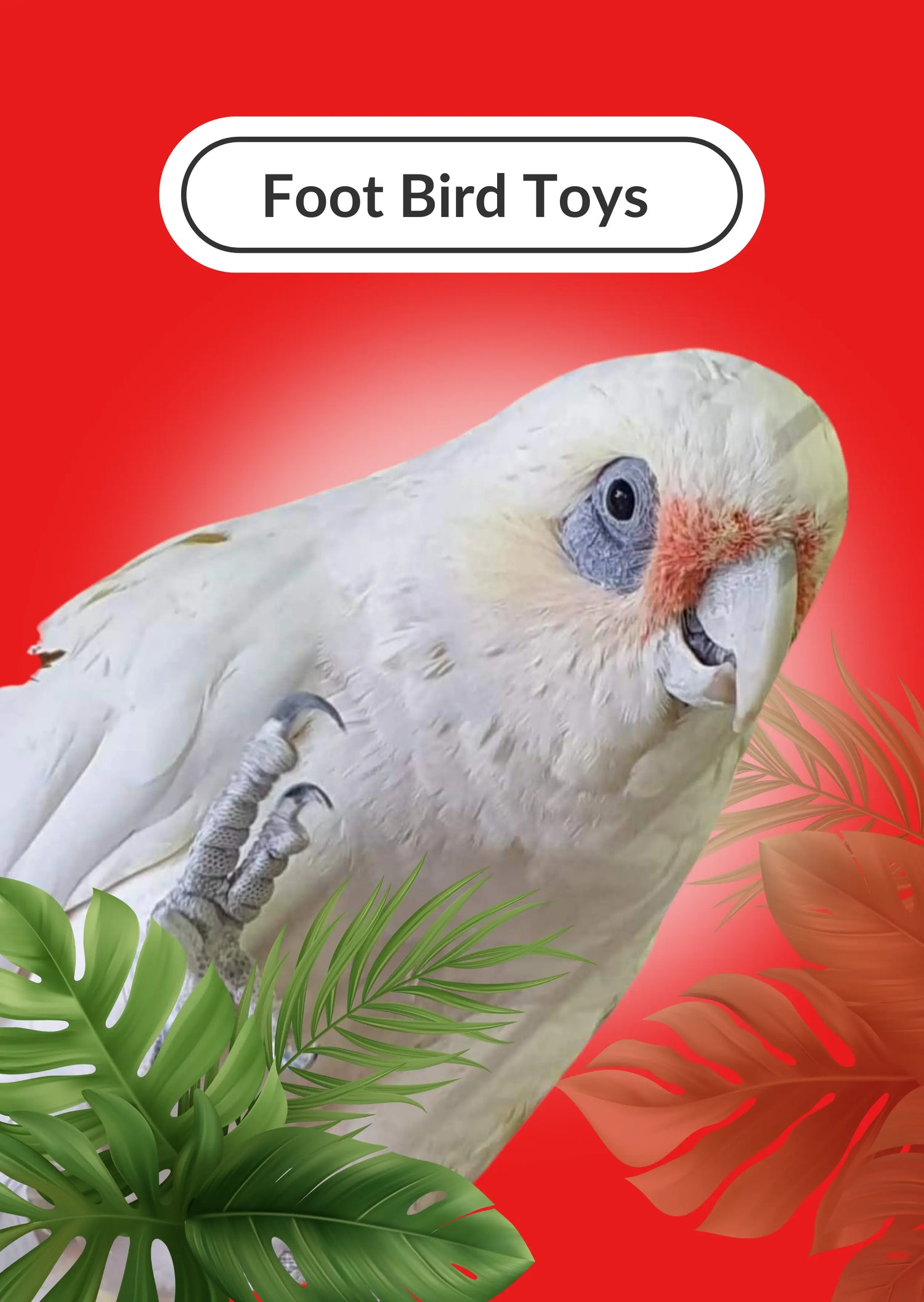So You’re Thinking About Getting a Pet Bird? Read This First.
There’s something truly magical about bringing a bird into your life. The chirps, the personality, the connection. But before you head out and bring home a new feathered friend, there’s a lot to consider. At Lou Lou Bells Bird Toys, we’ve worked with birds for over 30 years, and if there’s one thing we’ve learned, it’s that bird ownership is not just a hobby. It’s a lifestyle.
If you’re just starting out, this guide will help you decide if a bird is the right companion for your home and how to keep them happy and healthy for years to come.
Birds Aren’t Just Cute. They’re a Big Commitment
Let’s start with the truth: birds aren’t low-maintenance pets.
Depending on the species, you could be signing up for 5, 10, or even 20+ years of care. Birds need attention, mental stimulation, a proper diet, a safe environment, and regular interaction. You can’t just hang a swing in a cage and forget about them.
When you bring a bird home, you’re agreeing to provide a safe, enriched life. And trust us, when you get it right, the bond is incredible.
Kids and Birds: It’s Not a Set-and-Forget Situation
It’s great when kids grow up with animals. They learn patience, compassion, and responsibility. But don’t fall into the trap of thinking your 8-year-old is going to take full care of a bird without help.
Bird care is an adult responsibility. Kids can definitely be involved (and should be!), but ultimately, it’s on you to make sure the bird’s needs are met every single day.
Choosing the Right Bird for Your Home
For first-time owners or those in apartments, budgies (a.k.a. budgerigars) and canaries are often a perfect fit. They don’t take up much space, they’re affordable to care for, and they’re full of personality.
Want a bird that might talk? Go for a male budgie. After some training (and lots of patience), they can learn to say a few words. If you're after beautiful birdsong instead, a male canary will be your little home musician.
Where You Get Your Bird Matters. A Lot
Please don’t buy from the first pet store you find, especially if the birds look stressed, crowded, or unwell.
Find a trusted breeder or rescue group. A good seller will be open, knowledgeable, and genuinely care about where their birds end up. If something feels off. Walk away. Buying a bird in poor condition only keeps bad breeders in business.
And remember: a healthy bird will have clear eyes, clean feathers, and a curious energy. If it’s sitting quietly with puffed-up feathers and barely moving, that’s a red flag.
Creating a Space Your Bird Can Thrive In
Whether it’s a full aviary or a roomy indoor cage, your bird’s home is its whole world. It needs to be clean, safe, and interesting. Birds need enough space to flap their wings, hop, stretch, and explore.
Place their cage somewhere warm and bright, away from drafts and direct sun. Birds love to be near people, so make it a social spot in your home. Avoid leaving them in a forgotten corner. They're not furniture; they’re family.
Don't forget a variety of perches, fresh food and water daily, and of course. Toys! Bored birds become sad birds. That’s why we hand-pick every toy at Lou Lou Bells with enrichment and safety in mind.
Daily Cleaning = A Happy, Healthy Bird
Your bird doesn’t want to live in filth any more than you do. Wipe down surfaces, clean water and food bowls, and remove any mess from the cage floor daily.
At night, cover the cage loosely with a breathable cloth to give your bird some peace and quiet while they sleep and to protect them from chilly breezes.
If you’re letting your bird enjoy some fresh air outdoors, supervise them and make sure the cage is shaded and protected from predators (yes, even that curious neighbour cat).
Handling and Socialising: Bonding Takes Time
Birds can absolutely become finger-tame and even enjoy cuddles, but it doesn’t happen overnight. Start by calmly talking to them and letting them get used to your hand in the cage. Gradually, you can teach them to step up onto your finger and build trust from there.
Every bird is different; some are naturally more social, while others need extra patience. Always go at their pace.
Can My Bird Learn to Talk?
Some can! Budgies are particularly good mimics when trained early (around six weeks old is ideal). Use the same word over and over in a calm, clear voice. Once they get the hang of one word, you can expand their vocabulary slowly.
Canaries don’t talk, but their singing more than makes up for it.
Feeding Your Bird the Right Way
A good diet is a must. Forget the idea that a handful of seeds is enough.
Your bird’s meals should include a high-quality seed or pellet mix, fresh greens like kale or spinach, and a little fruit now and then. Cuttlefish bone is also essential. It keeps their beak in shape and provides calcium.
Always give them clean, fresh water. On hot days, top it up more often and keep an eye out for anything floating in the bowl.
Spotting Health Issues Early
Birds are very good at pretending to be okay, even when they’re not. That’s why you’ve got to pay attention.
Signs your bird is healthy:
- Bright, clear eyes
- Clean feathers held close to the body
- Normal droppings
- Active, alert, and curious
Signs something’s wrong:
- Sitting still and fluffed up all day
- Staying at the bottom of the cage
- Breathing with an open beak
- Loss of appetite
- Discharge from eyes or nostrils
- Feather plucking
Some issues can be fixed at home (like changing diet or cage setup), but others need a vet. Don’t wait too long; early action makes a big difference.
Common Health Problems (and What You Can Do)
- Overgrown Beak or Claws: Usually caused by soft perches or lack of chewing material. Your vet can trim them safely.
- Mites or Scaly Face: Little parasites that irritate your bird’s skin. Look for crusty patches near the beak and legs. Use vet-approved treatments like Avimec, and clean the cage thoroughly.
- Feather Plucking: Often due to boredom. Add more toys, rotate them often, and spend quality time together.
- Breathing Issues: Could be a cold or something more serious. Provide warmth and see a vet if it doesn’t improve.
Don’t Forget Bath Time!
Birds love to keep clean. Offer a shallow bowl of water a few times a week so they can splash around, or gently mist them with a spray bottle. Some birds love it, others need time to warm up to the idea.
A Final Word From Us
At Lou Lou Bells Bird Toys, we don’t just sell toys; we live and breathe bird and bird care. We’ve spent decades helping bird owners give their pets a better life, and we’re always here to help you do the same.
Whether you're new to bird ownership or you've had feathery friends for years, always remember: birds aren’t ornaments. They’re intelligent, emotional, and deserving of a safe, joyful life.
🦜 Ready to enrich your bird’s world? Browse our toys here







